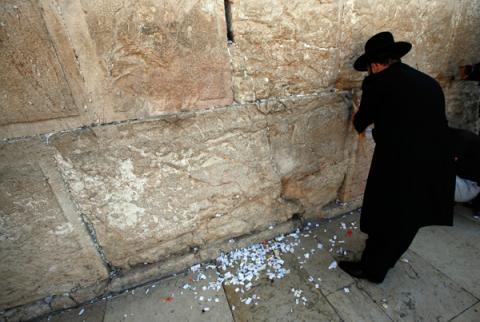Gouging the people in the name of religion
The Religious Services Ministry has set a scale for determining rabbis’ salaries based on seniority, the size of the community where they serve and their rabbinic degrees. But in fact, various historical arrangements have set in stone a disproportionate and unfair remuneration policy.
Reports by religious councils reveal that, in addition to rabbis appointed over the past decade who earn NIS 7,500 a month, there are some rabbis - for example, in the community of Gan Yavneh and the settlements of Elkana and Karnei Shomron - whose salaries cost an annual NIS 929,000, NIS 765,000 and NIS 688,000, respectively. This is hundreds of times more than the average cost of salaries in the public sector or anywhere else in the economy.
The reports also reveal that in the towns of Rosh Pina, Elyachin, Azor, Even Yehuda and Kiryat Motzkin, for example, the cost of the rabbis’ salaries is relatively high considering the reported extent of their activities. That is, there is no connection whatsoever between the level of a rabbi’s salary and the work he actually does.
The solution to this improper state of affairs is a wide-ranging reform of religious services that would eliminate unnecessary positions; examine whether a rabbi is needed for every community; regulate salaries in keeping with uniform, transparent standards; and perhaps even reverse a historic injustice by releasing religious services from the Orthodox monopoly and the requirement to use only its services.
All Israelis are required to fund religious institutions and religious services. Their close supervision is necessary right now, to wipe out the distortions in salaries and prevent the waste of public money.

